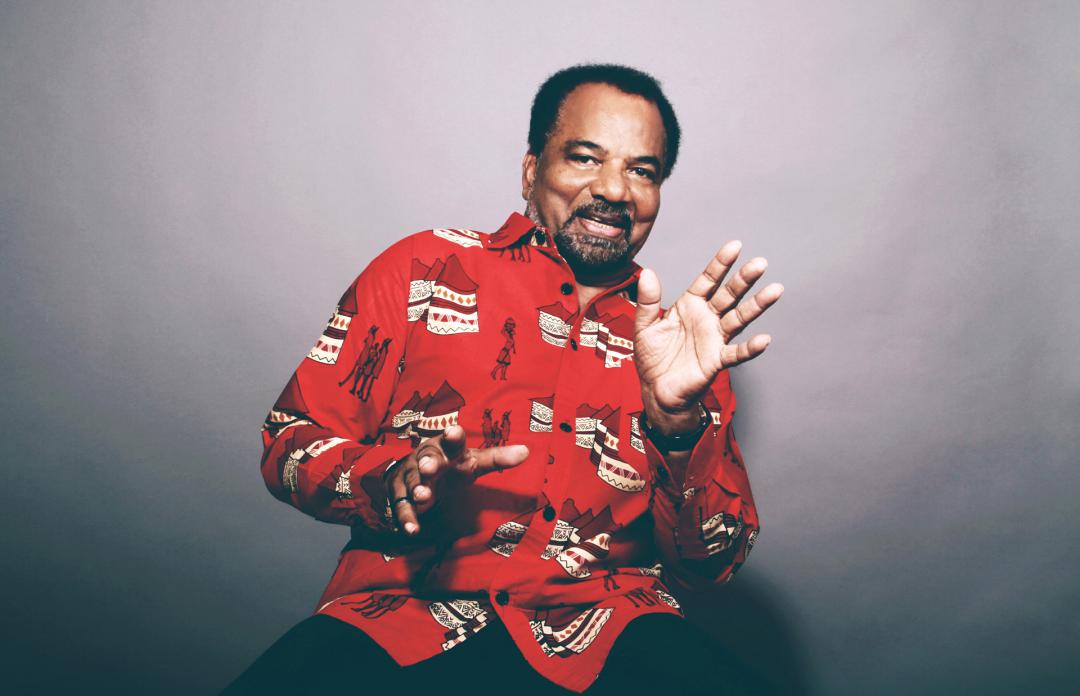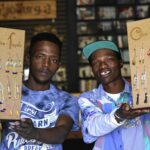Bonga Kuenda is the living master of Semba, Angolan folk music. Bonga has songs for everything; from weddings to funerals but most notably, he has songs that tell the stories of struggles the Angolans went through during the Portuguese’s colonial rule.
Bonga has always aimed to remain true to his identity. He didn’t like the fact that Portugal owned Angola, his country. He wanted independence.
‘In the 1950s and 60s, there was a real atmosphere of fear in Luanda. There was repression, forced labour, 90% of the locals lived in shanty towns. They were dirty and overcrowded. Really only the Portgugse lived in and owned proper buildings.
Schools were segregated. We wanted to protest but it was impossible to do it openly because the political police were scary and tough. If they caught you, you could be whipped and sent to jail.
It was terribly painful to be Angolan and to be only taught Portueguese history at school. You know they told us about the rivers of Portugal and the philosophy of Portugal but nothing about Angola and it’s very painful.
He feared the political police. So in music, which his father introduced to him at a tender age, he found a way to protest and develop his Angolan identity.
‘It was in itself a political act to play and sing Angolan music, the folk songs of my people. My biggest protest was through music. Our music wasn’t played on the radio. You only heard Portuguese music or classical music on the radio and I couldn’t have love for that music. It was forced upon us. It’s imposed so we couldn’t enjoy it.
The Angolan music we played at home was what we enjoyed.

We sang in Chibundu which is the Bantu language of Angola. It was important to me to sing in that language because the Portuguese couldn’t understand it so we could sing what we wanted. One song was about the unhappiness of the people. The song was a lamentation that we were in our own country but not in control of it.’
Music this overtly political came with its own risks and performers had been persecuted before. There was a pioneer of modern Angolan music who had been a star back in the 1940s. That was until he was silenced by the portguese and imprisoned him in the penal colony on the Cape Verde islands suspecting he was a nationalists.
So Jose Adelino managed to stay under the radar and moved on to another activity he excelled at. In addition to being musical and political, he competed as a sprinter.
Jose Adelino is known as the fastest runner from the Portuguese Empire. He ran 100m, 200m, and 400m races for Portugal. Although he insists he never represented Portugal but was doing it for Angola.
‘I was driven by a great political cause. I wanted to escape the shanty towns. I wanted a better life. I wanted independence and that drove me to go faster and faster. I broke all the Angolan records for 100m, 200m, 400m.
I wasn’t there to represent Portuguese.I was there to present a future Angolan society. An independent Angola. I wasn’t happy to be flying the flag of a colonial country but I was my own person and that was important. I thought of Angolans when I raced.
There were a group of us. Anglian athletes competing around europe. Our presence itself was political to show that we have sporting power. It felt like it was equivalent to the black power salute at the olympic games.’
His status as an athlete gave him an unusual freedom of movement for an Angolan. So while he was travelling around Europe he became something like a clandestine political operative secretly delivering written pamphlets written by freedom fighters from back home.
‘The pamphlets were written by anonymous individuals. We never knew the authors. They were part of Angola’s freedom struggle, a defence of our freedom and country. They were a way to inform people of the atrocities committed by the colonialists in our country and by distributing these abroad, were bringing a greater awareness to our struggle and the suffering of the Angolan people.’
But it wasn’t an easy feat to send envelopes talking against the Portuguese. Jose Adelino and his network had to be extremely cautious as the political police were always nearby watching their every move.
‘The political police were always in control. They surrounded us during training. They’d be on the plane when we travelled. Sometimes if we were having a party, they’d be outside in the streets. They made themselves felt always all the time.
Whenever there was any kind of event, they were there. They were trying to control us 24/7. We had to act very carefully so they wouldn’t get suspicious. If I had been caught I would have gone to prison, been tortured and if you were famous, it made no difference.’
After months of communicating on the struggle, his secret network collapsed.
‘I was in Lisbon when a message from Angola came that a number of my friends in Luanda had been arrested and tortured. So I knew my time was up. I had 24 hours before I would be arrested too. So then I made my move. I had to flee.
I went to the airport and said I was going to Holland to buy records and I was questioned by customs. I told them the group and I were going to buy records from Holland because we like music and they asked me how many days we will spend over there, we said three and that was it. It was only later they really realised the rouse we pulled and then it was too late.
It was the great escape of Bonga.’
‘It hurt to leave athletics behind like that. Athleticism gave me joy, it filled my heart, but my head was telling me something else. My freedom was a greater cause.
That’s when Jose Adelino became Bonga. Bonga Kuenda means he who searches always moves forward. It has a rhythm that I like and it connects me back to my traditions. Jose Adelino was my colonial name, a name that the Portuguese knew. So becoming Bonga Kuenda, not only was a part of me embracing my Angolan identity, it was also a good way to hide from the Portuguese authorities.’
Upon arriving in the Netherlands, Bonga got back straight into music. He settled in well with the Angolan diaspora.
‘I never thought I’d have such a life in music but also I was weary. I was still on the lookout for the political police. They had quarters across Europe and I always thought, what if they found me but I kept going.’
His first album, Angola ‘72, released in 1972 had a massive impact in the diaspora and back home in Angola.
‘The album had a very strong positive reception in Angola and because of that I knew I had to put more out. It was sort of a revenge on the Portuguese in a way. It inspired me to become a musician professionally so I could stand up for Angolan music.’
He then released Angolan ‘74, his second biggest album. The timing of the release of this album coincided with the collapse of the Portuguese colonial power in Angola.
‘I was in Paris at the time. We were joyous,’ but civil war befell his home country soon after Angola gained independence.
Now living in Paris, he is a singer and a composer. He travels the world performing his music.














